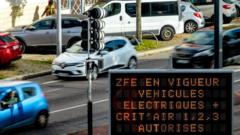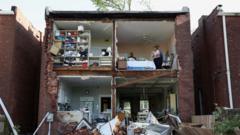In a notable development in the ongoing struggle over environmental advocacy, community organizations in St. James Parish, Louisiana, are standing up against legislation seen as detrimental to their efforts in addressing air pollution. This area, known as "Cancer Alley," has been severely impacted by industrial activities along the Mississippi River, prompting residents to take action with low-cost air pollution monitors since 2022.
However, a recently enacted Louisiana law mandates that only expensive air-quality monitors conforming to strict Environmental Protection Agency (EPA) standards may be used to claim violations of clean air regulations. Failure to comply with this law, which restricts the use of their collected data for advocacy, could lead to daily fines amounting to thousands of dollars.
Community advocates argue that this law infringes upon their constitutional rights to free speech and has initiated a federal lawsuit to challenge its validity. Caitlion Hunter, director of research and policy for RISE St. James, stated that this legislation serves to "silence the science" behind air quality realities faced by residents in the region.
Although Louisiana's law was deemed a pioneering measure, similar propositions are emerging in other states, with Kentucky passing an analogous law this year and West Virginia recently deliberating a version. The Louisiana Department of Environmental Quality has not made any public comments regarding the backlash, while the state's Attorney General Liz Murrill has also remained silent amid the controversy.
As legal battles unfold, community advocates remain vigilant in their mission to ensure transparent monitoring and representation of air quality issues in their region.





















